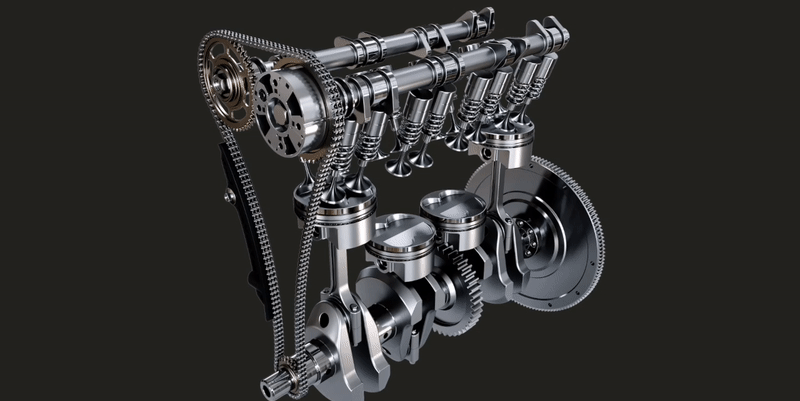Get the Perfect Fit with Engines For Africa's Diverse Choice
Get the Perfect Fit with Engines For Africa's Diverse Choice
Blog Article
A Total Overview to Picking the Right Engine for Your Job
Choosing the suitable engine for your task is a critical decision that can dramatically impact its total success. It is critical to thoroughly define your job needs, examine efficiency requirements, and think about user-friendliness together with other crucial factors. In addition, comprehending the neighborhood assistance readily available and inspecting price implications can even more refine your option. Each of these elements plays a critical function in ensuring that your picked engine not only fulfills immediate objectives but also straightens with lasting aspirations. As we explore these considerations, you might discover that the subtleties of each element disclose even more than originally expected.
Define Your Job Requirements
Defining your project requires is a critical action in choosing the suitable engine for effective application. A comprehensive understanding of your project's goals will lead you in recognizing the abilities and features called for from an engine. Begin by detailing the scope of your job, including the desired performance, target audience, and the details results you intend to accomplish.
Next, take into consideration the technological requirements that straighten with your project goals. This consists of reviewing the compatibility of the engine with existing systems, in addition to the shows languages and frameworks that will be made use of. Furthermore, analyze the degree of scalability needed to suit future growth or modifications sought after.
Budget restrictions additionally play a vital role in specifying your task needs. Develop a clear monetary structure to lead your decision-making process, ensuring that the engine chosen fits within your spending plan while providing the essential functionality.
Evaluate Performance Demands

Engines that support horizontal scaling are usually better for bigger applications. Additionally, evaluate the engine's performance under various conditions, such as peak usage circumstances, to guarantee it satisfies your reliability requirements.
Consider Ease of Use
While technical requirements are important, the ease of usage of an engine can dramatically affect the advancement process and total job success. An intuitive user interface, clear documents, and streamlined operations can drastically reduce the understanding curve for designers, allowing them to concentrate on creativity and problem-solving instead of facing complex devices.
When assessing an engine's ease of usage, consider the onboarding experience. A well-structured introduction, total with tutorials and sample jobs, can promote a smoother change for new individuals. In addition, the clearness and comprehensiveness of the engine's documentation play an important role; thorough guides and API referrals can empower designers to fix and implement features efficiently.
An engine that allows for easy alterations can be a lot more easy to use, as programmers can customize it to fit their particular needs without extensive problem. Inevitably, picking an engine that prioritizes ease of use can lead to a more delightful and effective development experience.
Assess Community and Support
The strength of an engine's area and support network can significantly affect a designer's experience and success. A dynamic neighborhood commonly indicates a wide range of shared understanding, sources, and fixing support that can enhance your job's development procedure. When analyzing an engine, think about the size and activity degree of its neighborhood. Bigger areas normally use much more discussion forums, tutorials, and third-party plugins, making it possible for designers to discover solutions extra effectively.
Furthermore, review the schedule of official support channels. Reputable documents, responsive consumer assistance, and routine updates are crucial for dealing with technological problems and maintaining your project on track. Engines For Africa. Energetic areas additionally foster collaboration, providing possibilities for networking and comments, which can be invaluable, specifically for independent programmers or tiny groups
Furthermore, check out the presence of community-run events, such click to investigate as meetups or hackathons. These gatherings can enrich your understanding of the engine while linking you with prospective partners and experienced individuals. In recap, a robust area and support group not just improve growth but likewise create an atmosphere for finding out and development, inevitably improving the likelihood of your job's success.
Contrast Expense and Licensing Choices
Spending plan considerations play a critical role in choosing the best engine for your task, as the expense and licensing options can significantly influence both short-term expenditures and long-term stability. Engines For Africa. Various engines provide differing rates structures, which can consist of one-time acquisition fees, registration designs, or revenue-sharing agreements based upon your job's earnings

Certifying choices also vary dramatically. Some engines are open-source, using versatility and community-driven assistance, while others might need proprietary licenses that limit use this post and circulation. Comprehending the ramifications of each licensing design is crucial, as it impacts ownership legal rights, future scalability, and possible legal obligations.
Conclusion
To conclude, picking the ideal engine for a job necessitates a comprehensive examination of specified job needs, performance demands, find more information ease of usage, community assistance, and expense considerations. By methodically addressing these critical variables, decision-makers can make sure positioning with both future and existing job needs. A knowledgeable option inevitably improves the chance of task success, allowing effective resource appropriation and making best use of possible results within the defined budgetary restrictions.
Picking the proper engine for your project is an important choice that can considerably influence its total success.Defining your project requires is an essential action in picking the suitable engine for effective execution. A comprehensive understanding of your task's goals will certainly lead you in identifying the functions and capacities called for from an engine.As soon as you have a clear understanding of your job requires, the following action is to evaluate the performance demands of the engine.In final thought, picking the appropriate engine for a job demands a comprehensive analysis of specified job requirements, performance demands, simplicity of usage, community support, and cost considerations.
Report this page